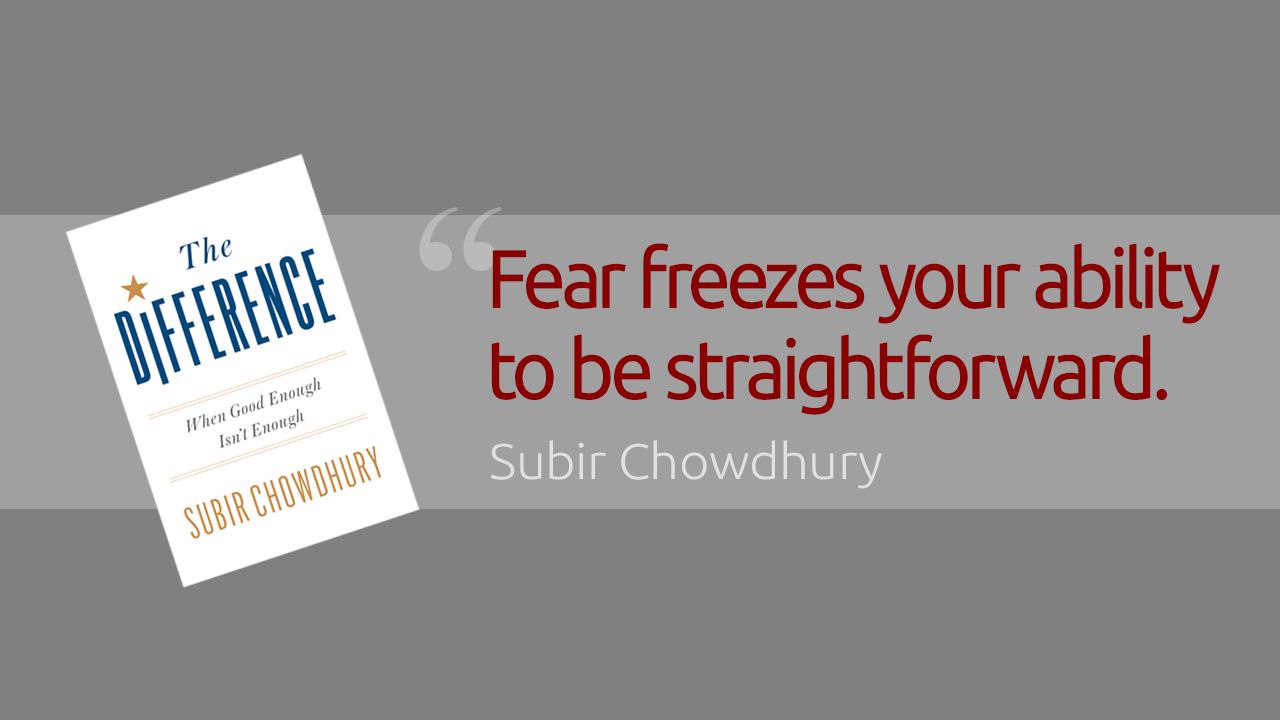Why do we lose sight of the importance of being straightforward and honest?
Quality & Me
Subir shares short stories about what people do to make a difference everywhere they go. We can make huge contributions to the way we function as a society by standing out as an example within our own community: at work, at our places of worship, among our colleagues, friends, and family. All it takes is the courage to step up and being straightforward, thoughtful, accountable, and resilient.
Think about it: when we are scared, nervous, or afraid, we shut out the outside world. We become less open and transparent.
Instead of accepting our true selves, and admitting that we are afraid, we put up a wall designed to keep out the truth. We make things up to compensate—about how good-looking we are, about how clever or competent we believe ourselves to be, about how much money we make. We lose sight of the importance of being straightforward and honest. Fear can undermine openness and honesty in anyone—including me!
Like many parents, I tend to think my children should be perfect. Take my daughter, for example. She’s a typical teenager. I sometimes forget that she is a far better person than I was when I was at her age. I can be demanding. In fact, at one point I didn’t think she was working hard enough and let her know. As a result, she withdrew from me. She put up a wall. The truth was, I was the problem. I was afraid that she might not be all she could be. But my approach just made things worse! When I realized how negative I was being, I had to remind myself to have a caring mindset.
Here’s what I did. I invited my daughter to go for a walk and talk. And you know what—we had a great time and an even better discussion! I realized how much she had accomplished and that I could learn as much from her, as she could from me. I was no longer afraid that she might not be all she could be. The wall between began to crumble because neither of us as afraid to be straightforward. When she understood why I was so exasperated with her, she opened up about her own hopes, dreams, and yes—mistakes. Fear had driven us from each other. Honesty brought us back together.
What walls have you built because you are afraid?



















